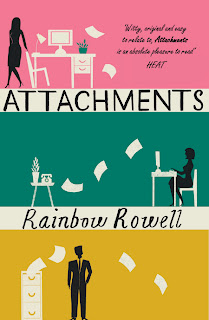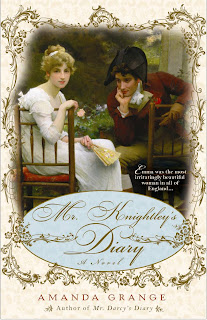I'm sure you've heard of this book. If you haven't, you've probably heard of the 1975 movie with Jack Nicholson. It won all the Academy Awards that year and very rightfully so. It's a very good movie, funny and moving and an interesting look at the problems within the psychiatric systems of the early 1960s. What you may not realize is that this amazing movie is based on an equally good book.
In 1960s Oregon (around The Dalles), a man named Randle Patrick McMurphy finds himself sentenced to a mental hospital. He's not that upset about it, though, because he came from jail on assault and battery charges and figures that it will be much nicer spending his sentence in the relative comforts of the psychiatric hospital rather than prison. He comes on to the ward and meets a lot of interesting characters: Harding, a smart man who's probably just repressed, Billy Bibbit, who has a childish charm, a stutter and mother issues, Cheswick, a loud mouth with a good heart but no followthrough, Chief Bromden, a tall half-Native American man who pretends to be deaf and mute, along with many others. None of them seem that bad to McMurphy and he begins pal-ing around with them.
What McMurphy didn't expect, however, was Nurse Ratched. Nurse Ratched rules the ward with an iron fist, using subtle shaming techniques and enforcement of rules to take almost all personal liberty and just plain old will to live out of the patients. She is not happy to find the rebellious and impulsive McMurphy on her ward and the two spend most of the novel butting heads, Ratched trying to keep control and McMurphy trying to buck the rules for himself and the other patients.
The story is mostly the same in the movie as it is in the book. All the same events happen, if in a bit of a different order. However, one very interesting difference between the film and the novel is that the novel's narrator is Chief Bromden. Instead of having an omniscient or limited third person narrator, everything is told through Chief Bromden's point of view. Although he's an important character in the film, this puts him in a much more prominent place for the novel. The reader learns more about him and his past and there's a lot more depth as a result. The Chief, having been thought of as deaf and dumb for so many years, has the advantage that everyone speaks normally around him, unafraid that he'll be able to repeat anything he hears. As such, he's a great narrator for the piece.
The only real problem I had with the book was the style it was written in. Chief Bromden's a good man but he's also been in a mental ward for almost twenty years when the novel begins. He also hasn't spoken for years. As such, he's speech patterns and ways of narrating are twisting, turning thoughts jumbled with half crazy ideas and observations that have to be taken with a dozen grains of salt. Although it's an interesting and very affecting style, it's also hard to decipher at times. There would be moments when I would read a whole page and then realize I had no idea what was going on. It takes a good deal of focus to keep up with the novel at times. It's worth it but it is hard work.
The story itself is completely immersing. Each of the characters are both easy to like and then completely foreign as their own mental powers overcome them. I'm also always a sucker for the kind of stories where the villain of the piece is a character that has power of authority over the main characters. I am absolutely terrified of movies where the 'bad guys' are the police or the government. Knowing that Nurse Ratched not only has the power to get them committed indefinitely but also can send them out for electroshock therapy and operations is terrifying. Having that kind of power over another human being is scary enough but in the hands of Nurse Ratched? *shiver*
Perhaps the most important thing about the whole story, and what makes it so powerful, is that it's based on Ken Kesey's own experiences working as an orderly in a mental hospital in California in the 1960s. Although the characters are not based on real people, obviously, all the experiences and ideas of the novel are grounded in truth and observation. This is what Kesey experienced and he felt so strongly about it, a classic was born.
The movie is amazing and I highly recommend you take some time to watch it if you haven't seen it. The novel is very good as well. I think I prefer the film but the book is definitely worth a read, especially if you like the Chief. It's a powerful story that will stick with you long after it's over.









